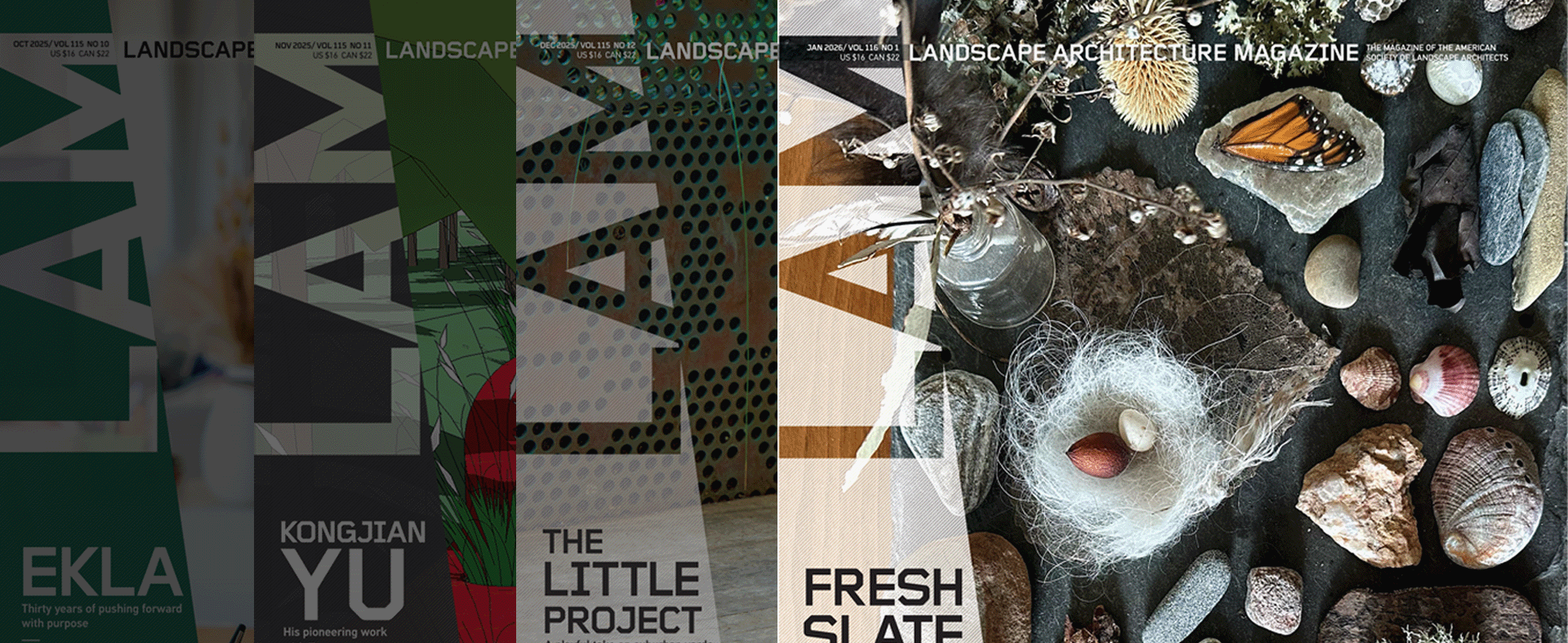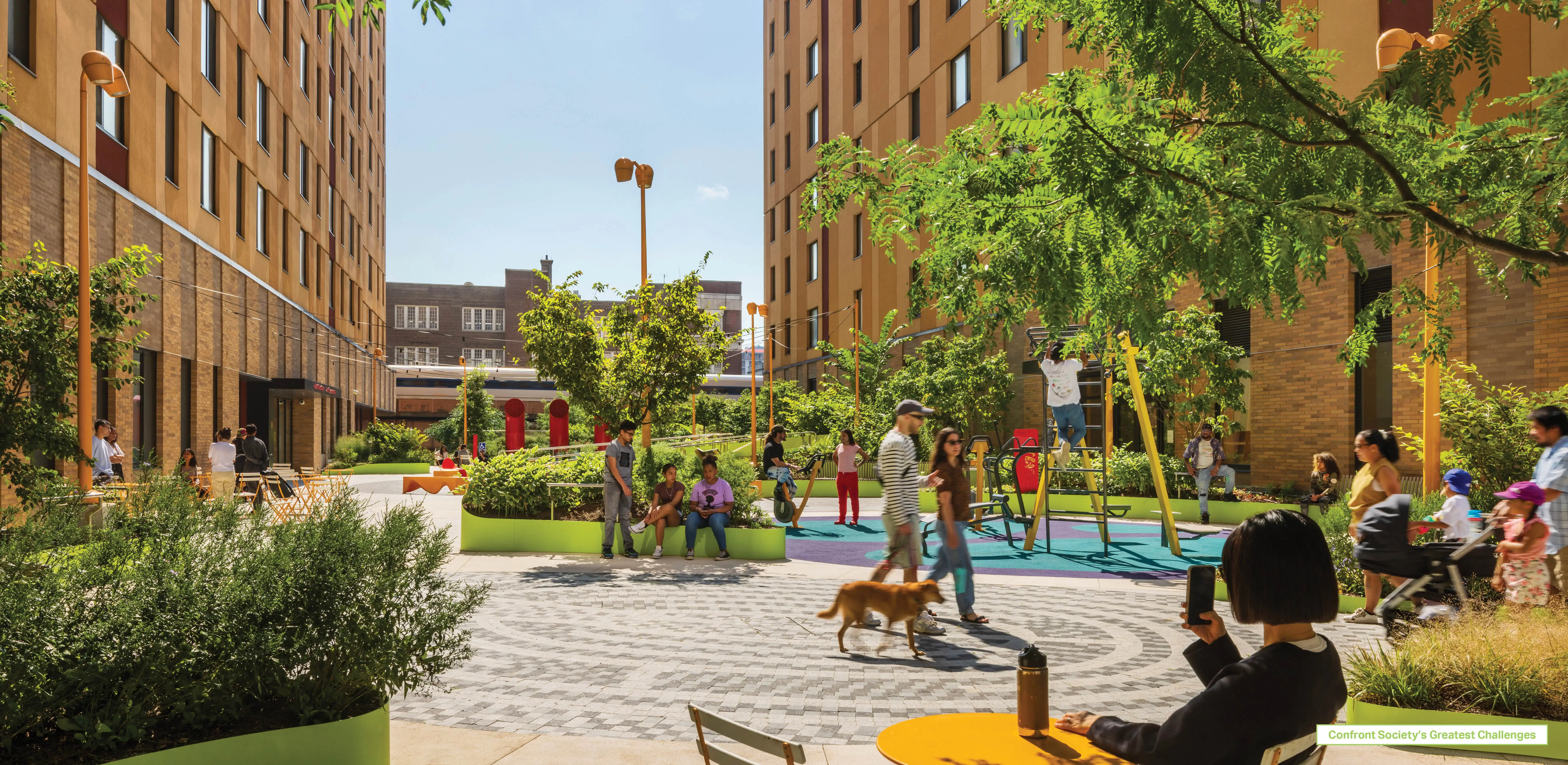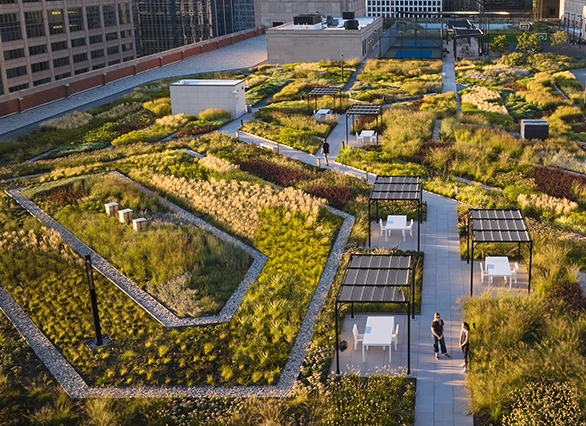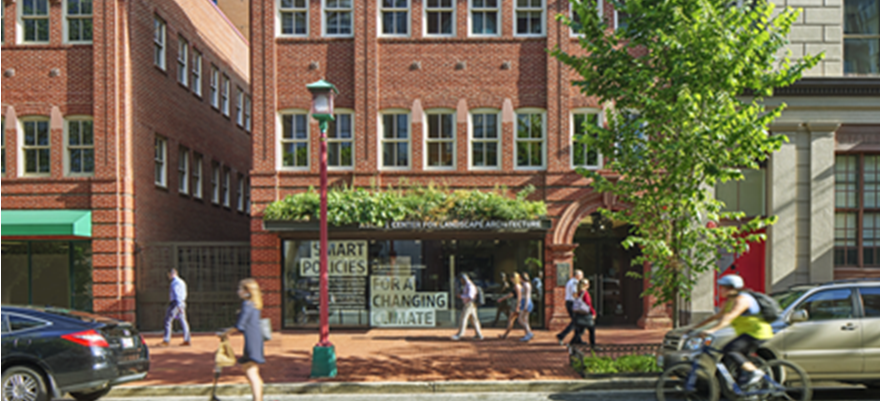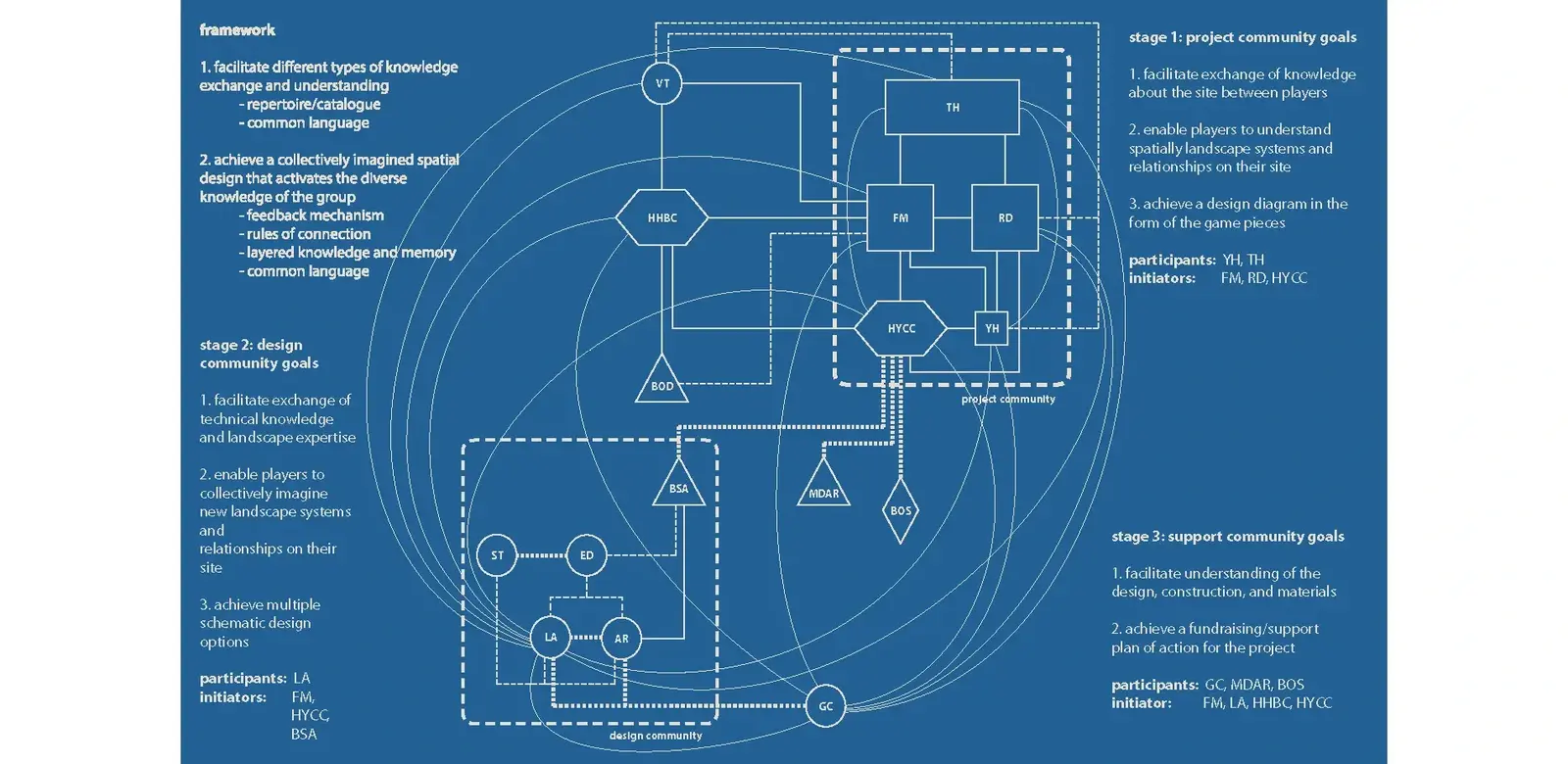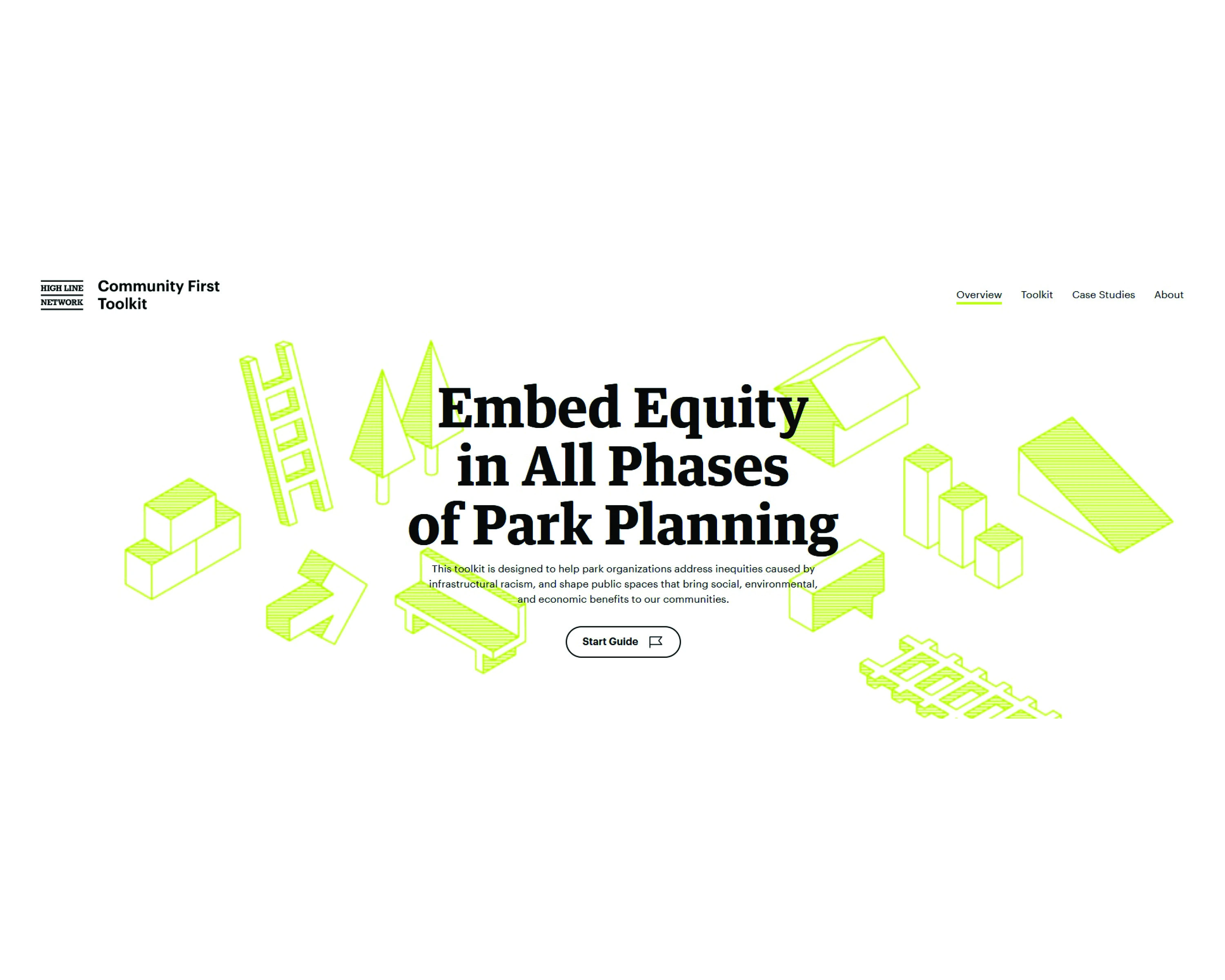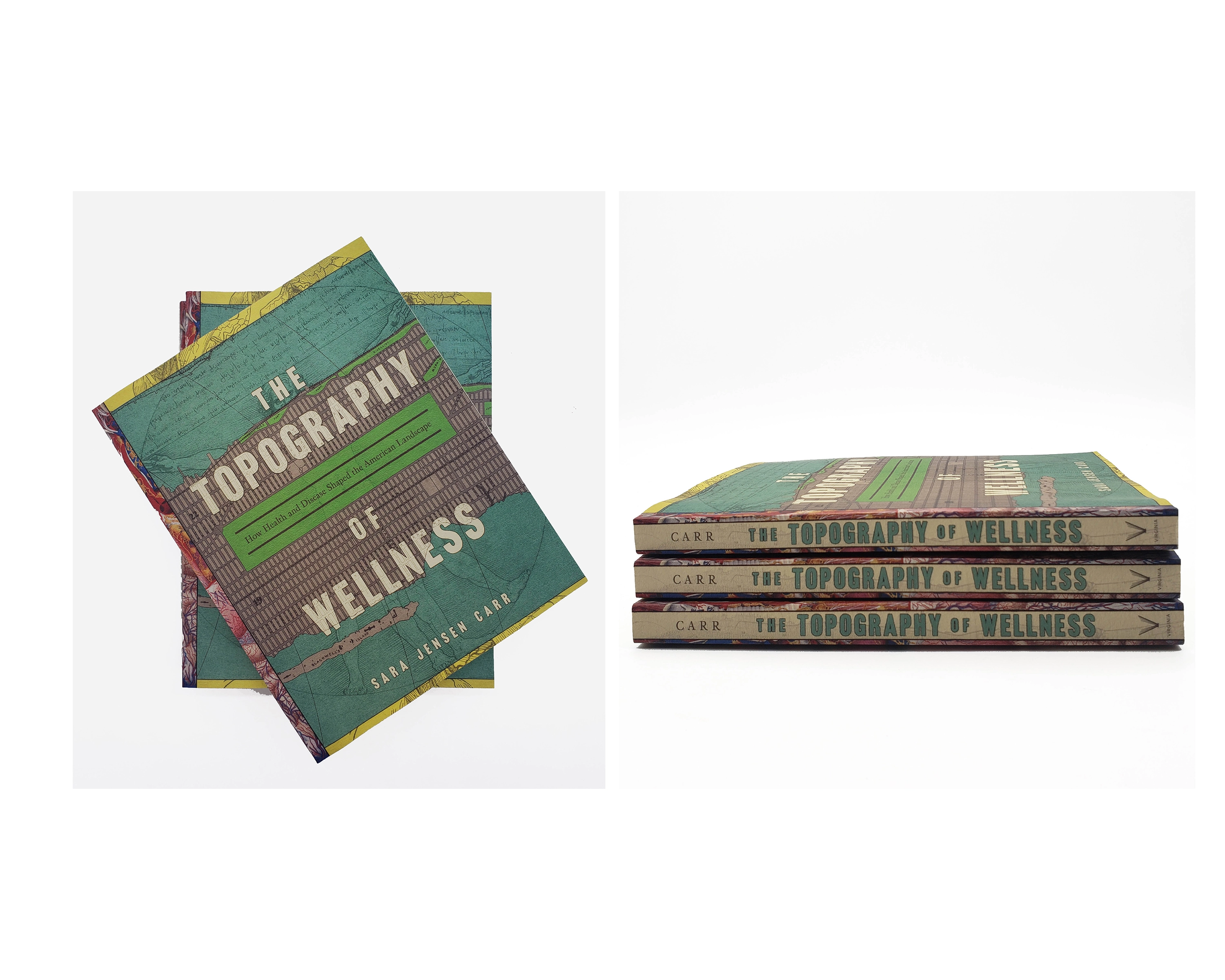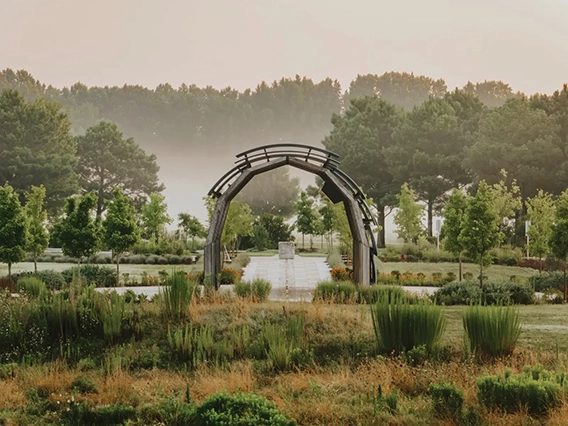Landscape Games: Tools for Collaboratively Shaping Our Environment
Christin Hu, Student ASLA
Landscape Games is an imaginative, flexible, and fun approach to participatory design and public engagement—an interactive tool that is useful for audiences of all ages and levels of sophistication. The adaptable game concept that takes players through phases of thinking about the environmental, social, and material aspects of both imaginary and real landscapes is an effective tool for stakeholder interaction but also serves as a hands-on lesson in interpersonal communication, collaboration, and participation, all critical components of the landscape architecture process.
Awards Jury
-
Landscape design concepts and processes, particularly in public projects with many stakeholders, can often be hard to communicate due to the disparate levels of engagement with communities as well as the context in which the communication takes place. The integration of landscape design thinking with everyday games not only functions as a communication device between players, but also gives people more agency in participatory design processes. The products of this integration are called landscape games, which are cooperative games that incorporate the design and creation of relationships among landscape elements and values. RELATE is such a game that enables the communication of landscape design concepts and interpretations to each player in a fun and accessible way. Not only does it communicate the potentials of landscape projects, but also provides a platform for equitable engagement and participatory design.
-
The integration of landscape design thinking with everyday games gives people more agency in participatory design processes. The products of this integration are what I'm calling landscape games, which incorporate the design and creation of relationships among landscape elements and values. Through the playing and replaying of games alongside iterative landscape design processes, we will be able to take at least another step up on Sherry Arnstein's (1969) "ladder of participation." RELATE is such a game, meant as an open-source free-to-play game, which acts a tool and platform for participation, collaborative design, learning, and relationship building—the key components of landscape architecture communication.
The significance of games as a communication and learning device relative to landscape architecture practices lies in several essential concepts in the game design discourse and leaders in participatory practices. Josh Lerner (2014), the Executive Director of the Participatory Budgeting Project, states that games are unique in that they "require player participation," and it is through this participation that players learn to not only understand the rules of the game, but also "criticize and change it when necessary" (Making Democracy Fun, 17-18). Critique, as we know in the design profession, requires a level of respect and understanding, and is an important form of communication. A landscape game, such as RELATE, builds upon the productiveness of critique and natural, voluntary participation and amicability of playing a face-to-face game, by incorporating landscape elements and mechanics in the game components and gameplay.
All of these factors, make landscape games an incredible tool for communication that is collective, flexible, educational, equitable, and fun. Games like RELATE facilitate higher degrees of participation both within and outside of formal design projects, avoid false agreements and group think that can occur in public engagement sessions, and enable greater transparency in the designer-led translation process of the products of participatory design workshops. It is also important to also mention the high degree of communication in form of playtesting sessions that were carried out in the development of the game. RELATE is not only a tool for communication, but necessarily involves communication in its own creation process.
To better understand the effectiveness of RELATE and the development of this landscape game, a case study of the Thornton St. Farm and Community Gardens in Boston, was investigated as a part of this design research and game development. Over the course of one academic year, with 42 playtesters and nine recorded playtesting sessions, I worked with real community members and stakeholders with whom I've jointly developed this game. The following paragraphs describe the specifics of the audience of the game as well as the game components and gameplay.
There are three different communities that I've identified as the core audience for the game: the Project Community, who interacts with the site on frequent basis and includes both designers and non-designers as well as community leaders and youth; the Design Community, who include, architects, design students and educators, and landscape architects in both the private and public sectors; and lastly, the Support Community, who are generally off-site, but a critical to the functioning and operation of the site, including non-profit organizations, such as Haley House Bakery Café, as well as volunteers, contractors, landowners, and grant funding agencies. Within each community, the playing of the game starts with a facilitator who likely knows how to play the game, can get people together, or who just want to have fun. As in most games, like the The Landlord’s Game (aka Monopoly), the facilitator or "banker" is decided collectively. These games are meant to be played frequently, formally, and informally, with or without designers throughout the life of the project—real or imaginary.
RELATE: a landscape game for collaboratively shaping our environments consists of three rounds, each with two phases called Relate and Reflect. Each round lasts about one hours, with a full playthrough (3 rounds) lasting up to three hours for first-time players. While the time commitment may seem daunting, the actual rounds and game play can easily be split up into 20-minute segments to allow for the most flexibility, accessibility, and participation.
After unpacking and reviewing the rules, the game begins by filling out a Project Card, which establishes a collectively decided prompt or "site" for the playsession—this could be real or imagined, and is often a location that each player is familiar with. Then, all the playerboards, player cards, and landscape cards are distributed and reviewed. Players can even add their own "landscapes" by sketching and labeling them on the blank cards. Each of these components allow equal access to what "actions" can be made on your turn, as well as the establishment of player identity, and already start to contribute to a sense of ownership over the project as each player takes turn choosing their landscape card deck.
Phase 1: Relate, is silent, and meant as an initial "brainstorming session," in which individual interests and interpretations introduced without coercion. In this process, players start to interpret the landscapes and value cards, as well as the aspects: environmental, social, and material. Players also start to react and pick up on what other players put down, actively thinking about the relationships that are being made as others play out their cards. Phase 2: Reflect is where the scoring and discussion comes. Scoring is collective and is visually indicated by "meeple" tokens placed on your project card for everyone to see. Players start to discuss and understand the different interpretations and expertise each player brings to the table and start to talk about the landscapes, values, and aspects as they relate to one another. The round ends with three collective decisions that emphasize the power of collaborative work.
Landscape games are effective tools for collectively designing our shared landscapes through their capacity for building community, encouraging equity, learning, and ongoing play and modification in an everyday context. While this game could be played with an imaginary site, the outcomes of the game have real implications and embody a critical part of the landscape design process. Landscape games and any illusions of false participation, while opening up new ways of collaboration in which all participants, engage, have fun, and RELATE.
-
Advisors and Supporters:
- Craig Douglas
- Rosalea Monacella
- Belinda Tato
- Neeraj Bhatia
- Anna Pierce-Slive
- Danielle Sommers
- Liz Miranda
- Charles Waldheim
- Seok-Min Yeo
- Arianna Mazzeo
- Ignacio Cardona
- Sonja Dümpelmann
- Harvard GameDevs
- Kevin Hu
- Cici Hu
Playtesters:
- Colin English
- Greg Ivey
- Brenna Ivey
- Michael Andryuk
- Nicolas Oueijan
- Savannah Maske Oueijan
- Carson Booth
- Danielle Choi
- Jill Desimini
- Adeeb Syed
- Emily Yang
- Raymond Wong
- Michael Hachey
- Michael Batt
- Gray Bitter
- Safia Singh
- Evan Moore
- Hugh Koschwanez
- Lucy Lomas
- Evan Pankey
- Ena Fox
- Aurora
- Noah McKenna
- Eric Gordon
- Anthony Amato
- Daniel Peterson
- Max Seidman
- Kin Maynard
- Karen Camaso
- Jeana Dunlap
- Steven Handel
- Michiel van Iersel
- Matthew Gehm
- Zhaodi Wang
- Wyatt Roy
- James Carrico
- Amirah Ndam Njoya
- Aysha Alsane
- Zarria Brown
- Bill Perkins
- Michael Smith Masis
- Eduardo Peláez
- Eric Moed
- Natalie Wang
- Stefano Romagnoli
Technical Support and Logistics:
- Harvard GSD Department of Landscape Architecture Staff, GSD Computer Resources Team, GSD Building Services Team, and Frances Loeb Library Team

.webp?language=en-US)
